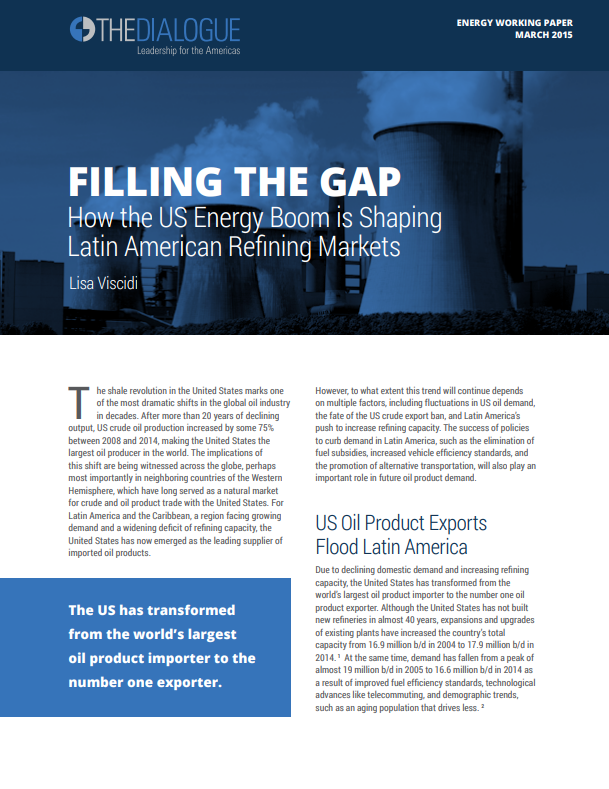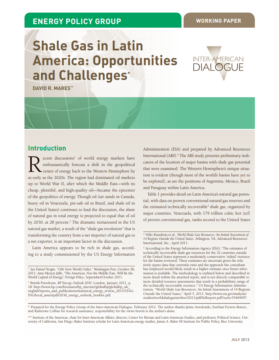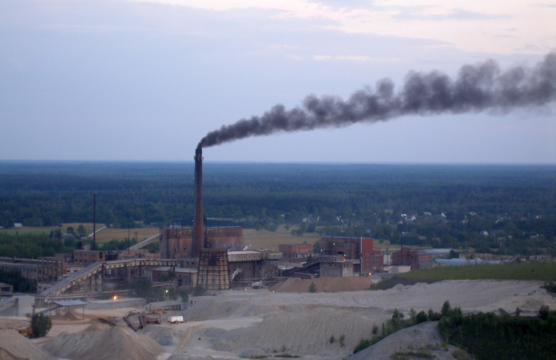Is the US Likely to Engage with Cuba on Offshore Drilling?
Will Cuba be able to safely regulate its oil industry?
The surge in unconventional oil and gas production in North America has dramatically shifted energy markets in the Americas, with important implications for Latin America and the Caribbean. A new report by Lisa Viscidi, Director of the Energy, Climate Change and Extractive Industries Program at the Inter-American Dialogue, examines the factors behind rising oil demand and the growing deficit in refining capacity in Latin America, as well as the geopolitical implications of increasing US oil product exports to the region.
The United States has become the world’s top exporter of refined products, thanks to increasing oil production, declining consumption, and a ban on crude exports. Latin America is now absorbing half of all US oil product exports.
In light of the refining gap, Latin American countries must choose whether to build new plants or take advantage of surplus US capacity to delay costly downstream investments. Building new refineries can bring benefits in terms of energy security, as well as investment and jobs for the local economy.
As this report shows, however, Latin American refiners will struggle to compete with those in the United States, who enjoy access to cheap natural gas, discounted US crude, and existing infrastructure. The report argues that US energy and export policies should therefore factor into Latin American countries’ downstream policies and plans. To close the refining gap, Latin American policymakers should also look to curb demand by cutting fuel subsidies, imposing fuel economy standards, and creating stronger regulatory and fiscal incentives to promote alternative transportation.
Will Cuba be able to safely regulate its oil industry?
Unless resource nationalism can be made compatible with providing incentives for significant foreign participation, it may be too early to start trumpeting a bonanza for Latin America.
A boom in the production of shale gas and other unconventionals has prompted a rethinking of energy policy in countries throughout the hemisphere and the world.


 Video
Video